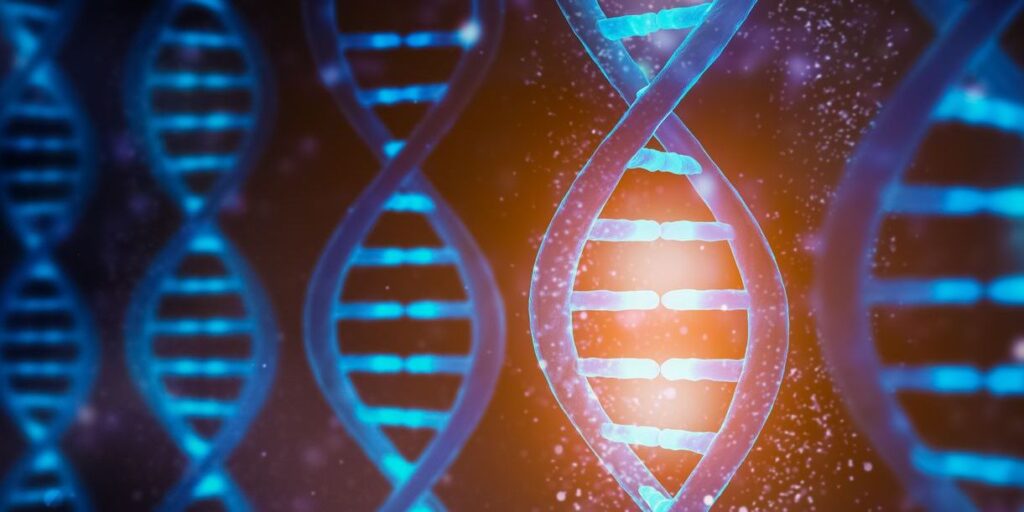Appearing most frequently in the later stages of adolescence and early adulthood, schizophrenia is a severe mental disorder that affects people’s thinking, mood, social functioning, perception of their surroundings, and sense of personal safety. It is essential to recognize the symptoms of schizophrenia and seek treatment as early as possible, as it can be debilitating if left untreated.
Symptoms of Schizophrenia
The onset of schizophrenia is usually gradual, starting with changes in behavior and mood. To friends and family members, the early symptoms of schizophrenia may be easy to overlook, and the onset of more severe episodes may seem sudden and unexpected. Symptoms vary from person to person, but a diagnosis will typically fall into three main categories: psychotic, negative, and cognitive.
Psychotic Symptoms
According to the National Institute of Mental Health, psychosis is a term used to describe any condition that affects the mind in such a way that there has been some loss of contact with or understanding of reality. Those with psychotic symptoms often experience the world in a distorted way. Common psychotic symptoms include:
- Hallucinations: Physically experiencing something that is not there. Hallucinations may be seen, heard, smelled, tasted, or felt. Hearing voices is especially common in those who suffer from schizophrenia. They may experience these hallucinations for some time before anyone in their life notices a problem.
- Delusions: While hallucinations are imagined physical experiences, delusions are beliefs that are not true and seem irrational to others. An example would be the belief that those in their life are trying to cause them harm or the belief that their medication is designed to control them instead of helping them.
- Thought disorder: This term describes symptoms of unusual, illogical, and challenging to comprehend thoughts. Individuals may have trouble organizing their ideas and expressing them to others. They may also stop talking in the middle of a thought, jump from various topics, or simply make up words that have no meaning.
- Movement disorder: This is when a person moves abnormally; for example, by repeating motions over and over.
Negative Symptoms
Negative symptoms include things like loss of motivation, withdrawal from social life, difficulty expressing emotions, and difficulties with functioning. Some of these may be mistaken as symptoms of depression. However, while depression may manifest similarly, there are some distinct differences. Some examples of negative symptoms include.
- Difficulty anticipating and feeling pleasure in everyday activities
- Limited facial expressions and adopting a dull or monotonous manner of speech
- Isolating oneself or having difficulty with socialization
- Difficulty planning and executing everyday activities
Cognitive Symptoms
Cognitive functioning refers to a variety of mental processes, such as thinking, reasoning, remembering, problem-solving, decision-making, and learning. In some cases, someone with schizophrenia may find that they suffer from interruptions to these processes resulting in a significant impact on their day-to-day functioning. Some of the symptoms described also overlap with attention-deficit/hyperactivity disorder (ADHD) and other learning disorders, and so these symptoms may be mistaken or overlooked. Cognitive symptoms may include:
- Difficulty following conversations
- Difficulty learning new things
- Difficulty processing information
- Inability to use new information after learning it
- Difficulty paying attention
- Inability to remember appointments
These symptoms vary in severity over time, with periods of worsening and remission of symptoms. Other symptoms may also present.
Violence
It is important to remember that most of those living with schizophrenia are not violent. That being said, the risk of self-harm and violence is greatest if the illness is left untreated. It is imperative to seek treatment as soon as possible to reduce the risk of self-harm.
Schizophrenia and Substance Abuse
As the early onset of schizophrenia may look or feel like symptoms we associate with various mood and cognitive disorders, it is not uncommon for individuals to seek out substances to treat their symptoms. These substances have been known to trigger a psychotic episode in some cases. Substance use can also interfere with treatments for schizophrenia.
Seeking Treatment
An unfortunate aspect of schizophrenia is that the individual often lacks awareness that the difficulties they have been experiencing stem from a mental disorder. For this reason, it often falls to friends and family to seek help. If you think someone in your life is living with schizophrenia, you can talk to them about your concerns. If they are experiencing psychosis, here are some things you can do:
- Help them get treatment and encourage them to stay in treatment.
- Understand that while they may be experiencing hallucinations and delusions, these experiences feel very real to them.
- Be respectful and supportive without tolerating dangerous or inappropriate behavior.
If you believe the individual may pose a danger to themselves or others, you should seek out emergency responders for help so that they can be evaluated by a mental health professional.
There is no cure for schizophrenia. This is a disorder that requires life-long treatment to manage. While other disorders may be manageable without medication, schizophrenia often requires antipsychotic medications to lessen the intensity and frequency of symptoms. In addition to medication, at Crownview Co-Occurring Institute, we believe in using therapy and life-skills coaching in combination with medication to find solutions in dealing with everyday challenges.
While this disorder is ongoing and severe, this diagnosis does not have to suggest doom. When schizophrenia is treated and managed over the long term, the client can live a normal and fulfilled life.
Schizophrenia is a complex disorder that can be debilitating to live with. If you have a loved one who is experiencing any of the symptoms listed above, don’t hesitate to call us today at 855-616-1095 for more information.



 Kimberly Gilkey, RADT-1
Kimberly Gilkey, RADT-1 Timothy Wieland
Timothy Wieland David Abram
David Abram Mark Melden, DO/DABPN
Mark Melden, DO/DABPN Jeffrey Klein
Jeffrey Klein Nathan Kuemmerle, MD
Nathan Kuemmerle, MD Laura Hopper, Ph.D.
Laura Hopper, Ph.D. Rebecca McKnight, PsyD
Rebecca McKnight, PsyD Milena Dun, PhD
Milena Dun, PhD Brieana Turner, MA, LMFT
Brieana Turner, MA, LMFT Brittany Perkins, MA, LMFT
Brittany Perkins, MA, LMFT Joanne Talbot-Miller, M.A., LMFT
Joanne Talbot-Miller, M.A., LMFT Alexis Weintraub, PsyD
Alexis Weintraub, PsyD Kathleen McCarrick, MSW, LSW
Kathleen McCarrick, MSW, LSW Christina Lam, N.P.
Christina Lam, N.P. John P. Flores, SUDCC-IV-CS, CADC II
John P. Flores, SUDCC-IV-CS, CADC II David Dalton, Facility Operations Director
David Dalton, Facility Operations Director Amy Thompson
Amy Thompson Kelly Schwarzer
Kelly Schwarzer Jovanna Wiggins
Jovanna Wiggins Alexandria Avalos, MSW, ACSW
Alexandria Avalos, MSW, ACSW Michelle Ertel
Michelle Ertel Emily Skillings
Emily Skillings Amanda Irrgang, Registered Dietitian Nutritionist (RDN)
Amanda Irrgang, Registered Dietitian Nutritionist (RDN) Gianna Melendez
Gianna Melendez Jodie Dahl, CpHT
Jodie Dahl, CpHT Jordan Granata, PsyD
Jordan Granata, PsyD